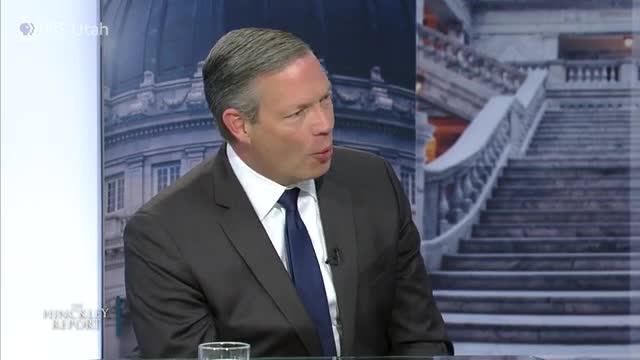Utah lawmakers propose criminal penalties for unauthorized access to voter records amid election reform debate
January 03, 2025 | Governor Cox Monthly News Conferences, Utah Governor Spencer Cox, Utah Governors, Utah Executive Branch, Utah
This article was created by AI summarizing key points discussed. AI makes mistakes, so for full details and context, please refer to the video of the full meeting. Please report any errors so we can fix them. Report an error »

In a recent government meeting, Utah lawmakers outlined their plans for the upcoming 2025 legislative session, focusing heavily on election reform and voting processes. A significant topic of discussion was a proposed bill aimed at criminalizing unauthorized access to voter records, which emerged in response to a controversial incident involving a county clerk in Utah County. This bill, introduced by Representative Stephanie Grishius, would make it a class B misdemeanor to access voter records without consent, carrying potential penalties of up to six months in jail and a $1,000 fine. This move reflects lawmakers' commitment to safeguarding voter privacy amid ongoing debates about election integrity.
The meeting also highlighted the contentious issue of mail-in voting. Lawmakers are considering a shift back to an "opt-in" system for mail-in ballots, which would require voters to actively request a ballot by mail rather than receiving one automatically. This proposal stems from a historical context where Utah was a pioneer in mail-in voting, and it aims to address concerns raised during the 2024 election cycle. While many voters appreciate the convenience of mail-in ballots, some lawmakers believe that changes are necessary to enhance the reliability of the voting process, particularly after issues arose with ballot postmarking and delivery during the last election.
In addition to these primary discussions, other legislative proposals were mentioned, including a bill that would eliminate residency requirements for individuals collecting signatures for ballot initiatives. This change could streamline the signature-gathering process and potentially expedite the overall election timeline.
Overall, the meeting underscored a bipartisan recognition among lawmakers that while Utah's voting system has its strengths, there are areas for improvement. As the 2025 session approaches, these discussions will likely shape the future of voting in Utah, reflecting both the state's commitment to electoral integrity and the evolving needs of its voters.
The meeting also highlighted the contentious issue of mail-in voting. Lawmakers are considering a shift back to an "opt-in" system for mail-in ballots, which would require voters to actively request a ballot by mail rather than receiving one automatically. This proposal stems from a historical context where Utah was a pioneer in mail-in voting, and it aims to address concerns raised during the 2024 election cycle. While many voters appreciate the convenience of mail-in ballots, some lawmakers believe that changes are necessary to enhance the reliability of the voting process, particularly after issues arose with ballot postmarking and delivery during the last election.
In addition to these primary discussions, other legislative proposals were mentioned, including a bill that would eliminate residency requirements for individuals collecting signatures for ballot initiatives. This change could streamline the signature-gathering process and potentially expedite the overall election timeline.
Overall, the meeting underscored a bipartisan recognition among lawmakers that while Utah's voting system has its strengths, there are areas for improvement. As the 2025 session approaches, these discussions will likely shape the future of voting in Utah, reflecting both the state's commitment to electoral integrity and the evolving needs of its voters.
View full meeting
This article is based on a recent meeting—watch the full video and explore the complete transcript for deeper insights into the discussion.
View full meeting

